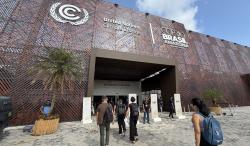In crisis situations, maintaining the operation of health and care facilities is essential to ensure public safety and crisis management. Health care facilities, especially hospitals, are an indispensable critical infrastructure for society. As highly sensitive and complex systems, hospitals are dependent on the permanent and reliable availability of other infrastructure systems, which are also necessary in crisis situations to maintain their functionality and to protect the people who are supplied with or work there. The provision of water in sufficient quantity and quality is a major challenge for the hospital operator and all other relevant actors in crisis situations, for example, caused by a large-scale power failure.
Overall seven network partners and other associated partners are working together on technical and organisational solution strategies for the risk management of health care facilities, especially with regard to a failure of water supply and disposal. The objective of UNU-EHS’ research is to improve contingency planning for failures or impairments of water supply and sanitation in health care facilities by comprehensively addressing organisational issues. This approach is based on the understanding that successful emergency preparedness can only be achieved through the interaction of technical and organisational processes and that the "human factor" and social resilience are of elementary importance for strengthening the resilience of health infrastructure.
The first scientific objective of the project is therefore to record the current state of knowledge and, on the other hand, to cluster factors that favor and hinder successful contingency planning and bridging of crises. The second scientific objective is the recording and systematisation of organisational structures, obstacles, but also existing informal processes, which could be helpful in the event of a crisis.
In the context of challenges to be expected in the case of supply bottlenecks or failures infrastructures, knowledge about organizational structures and the tasks of the various actors is of great relevance. The practical aim of the project is therefore to involve actors more closely in the development of resilience and minimum care concepts in hospitals.


